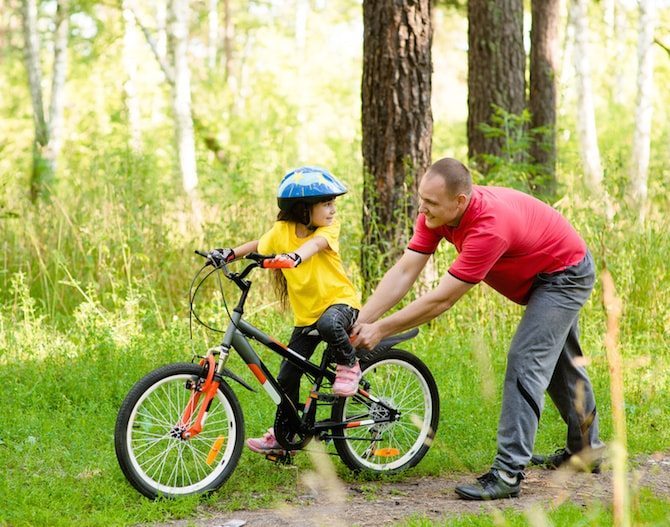This close to Christmas, most kids are enjoying their Christmas…
11 Parenting Tips You’ll Wish You Found Sooner

Parenting is a tough gig. Just when you think your life is all about your child, you realize that it’s actually all about you. Here are 11 parenting tips you’ll wish you found sooner. Why? Because these tips will make life better – not just for your child – but for you.
1. Avoid over-praising
Becoming good at things takes time and effort. Rather than telling your child they are the best at everything, give them the space to achieve competence. “As much as we may want to, we can’t praise our kids into competence,” says Jim Taylor, author of the book Your Kids Are Listening: Nine Messages They Need to Hear from You. He says over-praising kids does more harm than good and we’re actually “lowering the bar for them”.
“If you keep telling your child she is already doing a fantastic job, you’re saying she no longer needs to push herself. But confidence comes from doing, from trying and failing and trying again—from practise,” he says.
The idea is to wait until your child is doing something well rather than applauding something like bad spelling, for example.

2. Start building self-confidence early
While over-praising can be an issue, it’s vital that parents give their children the opportunity to learn new skills and the space to make mistakes. It’s important that kids continue to try rather than simply give up when it gets too hard. When your child is sharing with you their latest conquest, reward them with praise when they reach a new goal.
According to the team at Kids Health, “with plentiful opportunities, good instruction, and lots of patience from parents, kids can master basic skills — like tying their shoes and making the bed. Then, when other important challenges present themselves, kids can approach them knowing that they have already been successful in other areas.”
It’s important to be there to boost their spirits.

3. Pay attention
Make some time in your day to give your child your undivided attention. Sarah Henry from Baby Centre says this helps develop your child’s self worth as it “sends the message that you think he’s important and valuable”.
It doesn’t always mean giving them a whole hour – it sometimes simply means stopping for a minute and truly listening, making eye contact and responding back.

4. Put down the iPhone!
Smart phones apparently make up one third of parenting distractions and, as there are lots of different schools of thought on this topic, the key here is balance. Dr Jenny Radesky, a paediatrician specializing in child development, says parents being on their smartphone a lot is a big mistake “because face-to-face interactions are the primary way children learn.”
In For The Children’s Sake, Put Down That Smartphone, she says, “They learn language, they learn about their own emotions, they learn how to regulate them. They learn by watching us how to have a conversation, how to read other people’s facial expressions. And if that’s not happening, children are missing out on important development milestones.”
Fascinating stuff – and definitely food for thought.

5. Build connection
Nurture your child’s interaction with family and community. Give your child the opportunity to spend quality time with extended family and to engage in activities in the local community. This feeling of security starts at home and, when things get tough, they always know there’s someone or somewhere they can go to for support.
Nurturing communication skills at home is a vital part of this. In Building Resilience in Children, the healthychildren.org team suggest “building a sense of physical safety and emotional security within your home; allowing the expression of all emotions, so that kids will feel comfortable reaching out during difficult times; and addressing conflict openly in the family to resolve problems.”

6. Nurture self-care
While parents and children alike love to schedule in as many activities as possible into their week, it’s important to teach your child the importance of self-care or ‘downtime’.
According to Generation Next, this is vital to building their resilience. We need to teach children ‘the importance of making time to eat properly, groom themselves, exercise and rest’.

7. Say ‘I love you’
To nurture self-esteem and self-worth, tell your child you love them. The Raising Children Network says to “say it often and for no reason other than to show you appreciate your child”.

8. Make home a safe place
Bullying and taunting is a real experience for all children. For some, it can be a small part of their life outside of the home. For others, it can be all consuming.
If home is a safe place, your child will be better able to cope with bullying. It may not make school life any better, but at least home will be that one constant in their lives.

9. Avoid over-functioning
Stepping in to take control when things get tough for our kids is often a knee-jerk reaction to protect them. However, according to Empowering Parents, we can do too much for them when we should instead stay in our ‘own box’.
We need to “let them try to fight their own battles when possible and appropriate, rather than taking on their battles for them.” They need to learn how to approach a teacher to discuss a bad grade or deal with an argument with a friend.

10. Set limits together
There’s always that joke about the child going to the mother and hearing ‘No’ so going to the father with the same question and trying to get a different answer. This tip takes it one step further. This is actually about setting limits and consequences together with your child.
About Parenting explains that “being a part of the rule-setting process helps them understand the rules and consequences better”. Having an open conversation means that your child is on board with the reasons behind your decision not just you blindly laying down the ground rules for no apparent reason. This is particularly important as kids enter their teenage years.

11. Teach your child to help others
Empathy can be powerful. The ability to understand and share the feelings of another or ‘step inside someone else’s shoes’ is all about nurturing kindness in your child. No-one wants to hear about their own child being the bully!
Generation Next explains that children who may feel helpless can be empowered by helping others. Talk with your child about ways they can help others.

For more parenting tips check out our article 3 Secrets To Raising Kids Without Going Gray. And don’t forget to capture the good times with a family collage on canvas.



